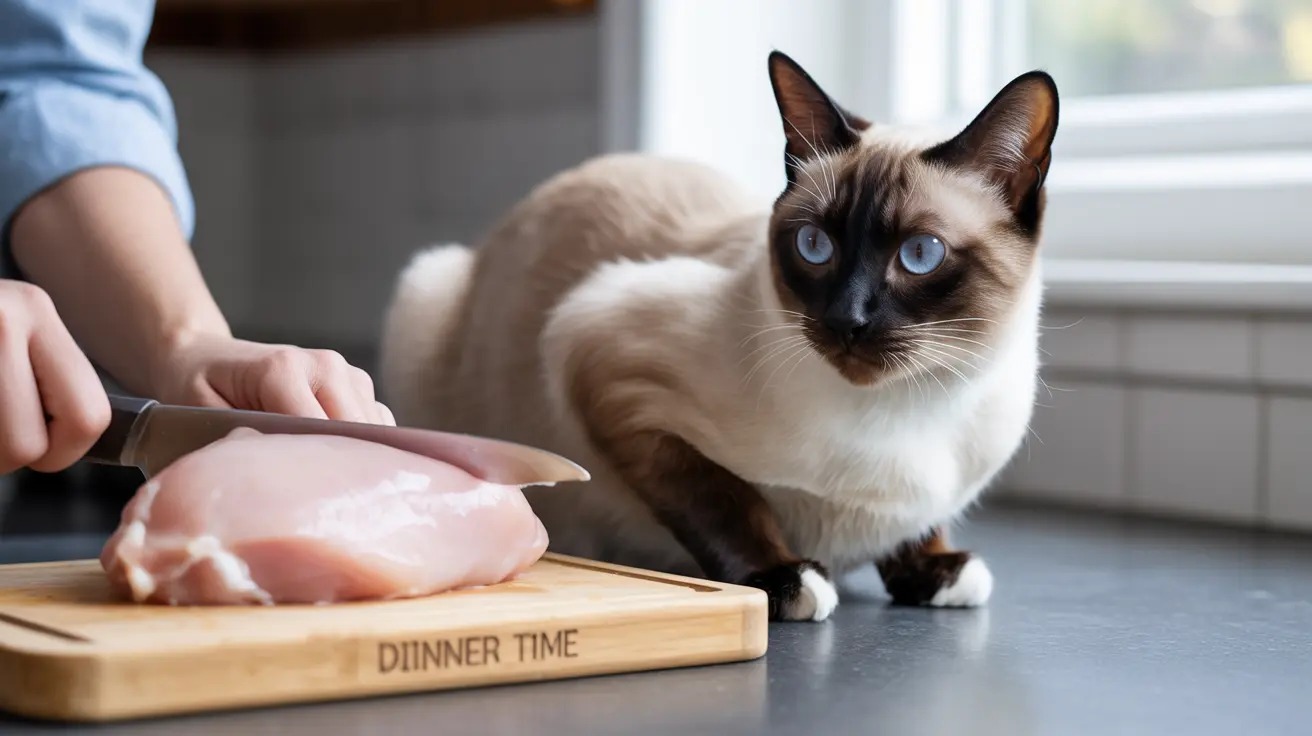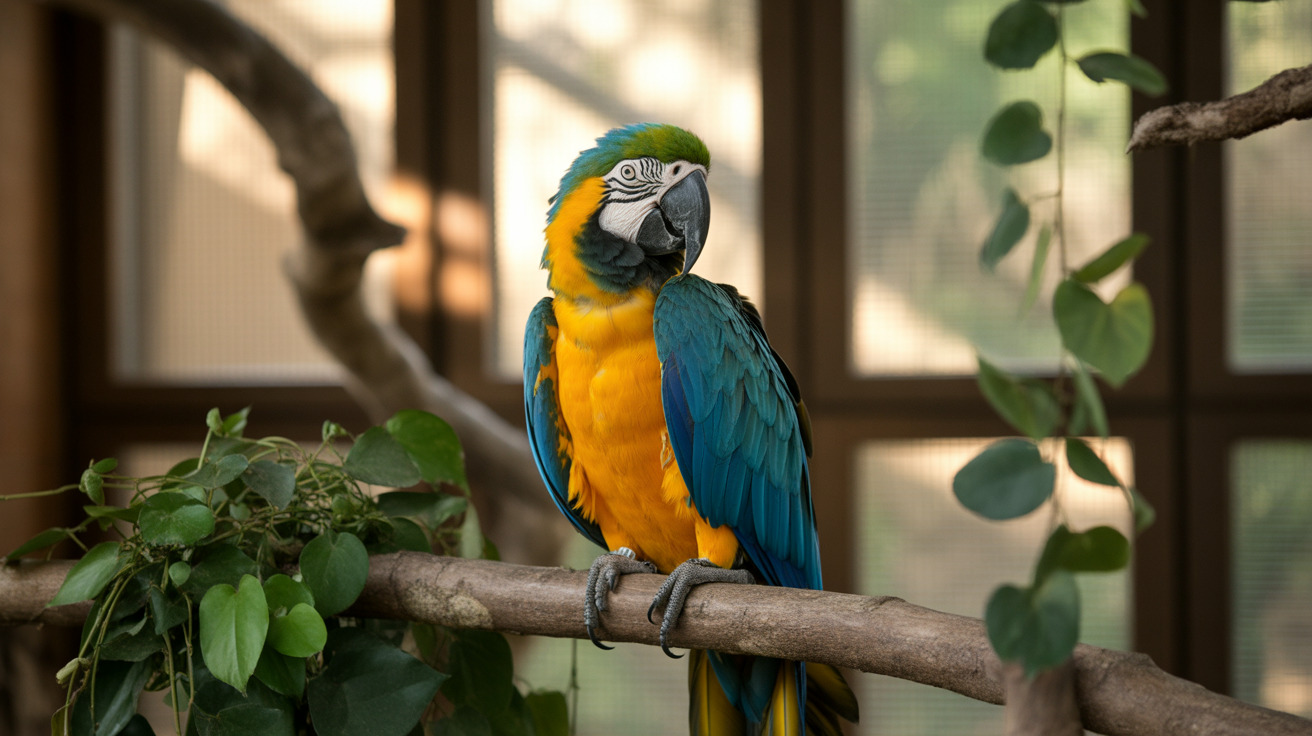As a cat owner, you might wonder about the safety and benefits of feeding raw chicken to your feline friend. While cats are natural carnivores with a biological predisposition for raw meat, the decision to incorporate raw chicken into their diet requires careful consideration and expert guidance.
This comprehensive guide will explore the nuances of feeding raw chicken to cats, highlighting potential benefits, risks, and essential safety precautions to ensure your cat's health and well-being.
Can Cats Eat Raw Chicken?
Cats can technically consume raw chicken, but it's not as straightforward as simply tossing a piece of raw meat into their bowl. As obligate carnivores, cats have digestive systems adapted to processing raw meat, but this doesn't mean all raw chicken is safe or nutritionally complete.
Understanding the Nutritional Profile
Raw chicken offers several nutritional benefits for cats, including:
- High-quality protein
- Essential B vitamins
- Minerals like selenium, iron, and zinc
- Natural amino acids
Potential Risks of Raw Chicken
Despite its nutritional potential, raw chicken comes with significant risks that cat owners must carefully evaluate:
- Bacterial contamination (Salmonella, E. coli)
- Potential parasitic infections
- Incomplete nutritional profile
- Risk of foodborne illnesses
Is Raw Chicken Good for Cats?
While raw chicken can be part of a balanced diet, it should never be the sole food source for your cat. Professional veterinary nutritionists recommend a carefully balanced approach to raw feeding.
Commercial vs. Homemade Raw Diets
Commercial raw cat foods are typically safer than homemade preparations because they are:
- Professionally formulated
- Nutritionally balanced
- Undergo strict quality control
- Designed to meet feline dietary requirements
Safe Preparation and Feeding Guidelines
Handling Raw Chicken for Cats
If you decide to incorporate raw chicken into your cat's diet, follow these crucial safety steps:
- Source chicken from reputable suppliers
- Maintain strict hygiene during preparation
- Use fresh, high-quality meat
- Keep raw meat separate from other food
- Wash hands and surfaces thoroughly after handling
Portion Control and Dietary Balance
Consult with a veterinarian to determine appropriate portion sizes and ensure your cat receives a comprehensive nutritional intake. Raw chicken should complement, not replace, a balanced diet.
Potential Health Complications
Improper raw chicken feeding can lead to several health issues, including:
- Nutritional deficiencies
- Bacterial infections
- Digestive problems
- Potential transmission of zoonotic diseases
What to Avoid
Never feed cats:
- Raw chicken bones
- Seasoned or marinated chicken
- Excessive fatty portions
- Chicken skin
- Organs without professional guidance
Frequently Asked Questions
Can cats eat raw chicken safely, and what are the risks involved?
While cats can consume raw chicken, there are significant risks including bacterial contamination, parasitic infections, and potential nutritional imbalances. Always consult a veterinarian before introducing raw meat diets.
How do I safely prepare raw chicken for my cat to minimize health risks?
Use fresh, high-quality meat from reputable sources. Maintain strict hygiene, separate raw meat from other foods, wash hands and surfaces thoroughly, and follow veterinary guidance on preparation and portion sizes.
Is it okay to feed my cat raw chicken exclusively, or do they need other foods?
No, cats require a balanced diet with multiple protein sources, vitamins, and minerals. Raw chicken alone cannot provide complete nutrition and may lead to serious health deficiencies.
What nutrients do cats get from raw chicken, and what are the potential deficiencies?
Raw chicken provides protein, B vitamins, and minerals. However, it lacks comprehensive nutritional elements like taurine, certain fatty acids, and other essential nutrients that cats need for optimal health.
Are commercial raw chicken diets safer for cats than homemade recipes?
Yes, commercial raw diets are typically safer because they are professionally formulated, undergo quality control, and are designed to meet comprehensive feline nutritional requirements.
Conclusion
Feeding raw chicken to cats is a nuanced decision that requires careful research, professional consultation, and a commitment to your cat's overall health. While raw chicken can offer nutritional benefits, it must be approached with caution, knowledge, and professional guidance.






